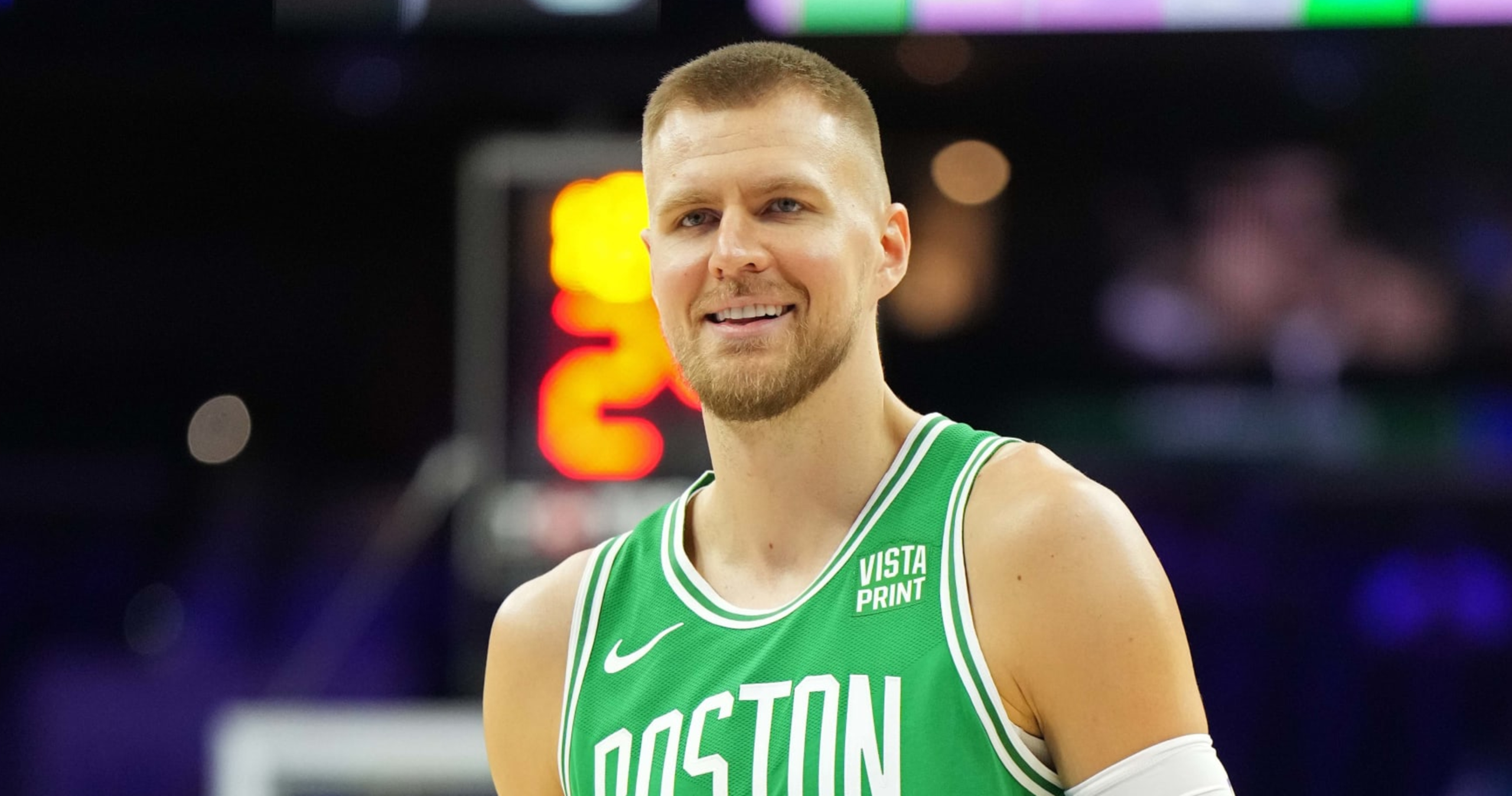Sports
Which High-Profile Moves from 2023 NBA Offseason Will Backfire? – Bleacher Report

The 2023 NBA offseason brought its share of fireworks, from blockbuster trades to some wild free-agent spending.
We saw a number of contenders shake up their core and go all-in for a title while one rebuilding franchise looked determined to return to the postseason, no matter the cost.
Let’s break down the five riskiest decisions from the summer (and fall) of 2023 and whether they will pay off or backfire for each team.
Decision Detail: Suns trade for Bradley Beal in three-team deal with Washington Wizards and Indiana Pacers, Phoenix gives up Chris Paul, Landry Shamet, 2024, 2026, 2028 and 2030 first-round pick swap rights and 2024, 2025, 2026, 2027, 2028 and 2030 second-round picks and cash
The Suns were a surprise landing spot for Bradley Beal given that the team had sacrificed all of its future first-round picks for Kevin Durant. We applauded Phoenix for being aggressive and adding a third star to the mix, especially after Chris Paul’s injury history in the postseason was again an issue this past spring.
Beal, 30, is still a top-10 shooting guard in the NBA, even if his All-Star days may be behind him. He’s an extremely lethal No. 3 option, one that would be a No. 2 on most other rosters.
While swapping out the 38-year-old Paul for Beal is a win in terms of a talent upgrade, this trade was both unnecessary and premature.
This combination of talent has to work for Phoenix. There are no first-round picks or pick swaps left to trade. The second-round pick cabinet is nearly empty. All the Suns have left now are some future seconds owed from other teams with some projected to land at the end of the draft (Denver Nuggets’ 2024 second) or carrying protections (San Antonio’s 2024 second protected 31-54 and Boston Celtics’ 2028 second protected 31-45).
The Suns would have been better off beginning the season with Durant and Devin Booker while holding on to their trade assets to determine what pieces were truly needed. Instead, forcing Beal into a point guard role he’s never played before on a full-time basis is yet another experiment that could go south.
Especially given his contract moving forward (four years at an average of $51.9 million per season with a no-trade clause), giving up Paul, six second-round picks and four first-round pick swaps seems like a massive overpay for a player who brings a mostly overlapping skill set to Booker’s primary position.
The trade looks exciting now, although this was a move that didn’t have to be, and shouldn’t have been, made just yet.
Pay Off or Backfire: Backfire. The Suns need this roster to work, as there are almost no options to upgrade what’s left.
Decision Detail: Celtics trade for Kristaps Porziņģis in three-team deal with Washington Wizards and Memphis Grizzlies, Boston gives up Marcus Smart, Danilo Gallinari, Mike Muscala and 2023 second-round pick (No. 35 overall) while also acquiring 2023 first-round pick (No. 25 overall) and 2024 first-round pick (top-four protected via Golden State Warriors)
The Celtics made a massive shake up to their core and locker room by sending out Marcus Smart and bringing in Kristaps Porziņģis, even if the move gave the team a higher ceiling overall.
Porziņģis was brilliant for Washington last year, averaging a career-high 23.2 points per game while ranking in the 96th percentile in estimated plus-minus (plus-5.1), even higher than players such as Donovan Mitchell, Jaren Jackson Jr. and Devin Booker.
With Al Horford having turned 37 this past offseason, the addition of Porziņģis reduces the veteran big man’s workload, giving the Celtics the chance to use him off the bench in a lesser role.
Still, investing this much in Porziņģis (along with a two-year, $60 million contract extension) is taking a gamble on his durability following six straight seasons where he’s missed 17 games or more. Smart was extremely valuable as a locker room voice and a perimeter defender, leaving a hole at point guard that Derrick White and Malcolm Brogdon were going to have to fill collectively.
While it was fair to question this move at the time, the trade for Jrue Holiday as a replacement (and upgrade) for Smart should erase any doubt that remains. Holiday brings many of the same qualities as Smart, along with a deep-seated knowledge of the Milwaukee Bucks that Boston can use in a potential Eastern Conference Finals showdown as a bonus.
The Celtics did a phenomenal job of hedging here, even using one of the first-round picks acquired in the Porziņģis trade to ultimately help land Holiday.
When you combine the two moves, the trade for Porziņģis now becomes completely justified despite the initial risk.
Pay Off or Backfire: Pay Off (thanks to the Holiday trade)
Decision Detail: Rockets sign Fred VanVleet to three-year, $128.5 million max deal and Dillon Brooks to four-year, $86 million deal
The Rockets certainly weren’t shy spenders in free agency, using their league-leading $60 million-plus in cap space to make some major additions to the roster.
Starting with Fred VanVleet, they were wise to target a true point guard, someone who could step into a leadership role, run the offense and put everyone else in the best position to succeed. Houston was a bit of a mess the past few years in terms of offensive cohesion, ball-handling and outside shooting, all areas that should be much improved under the 2022 All-Star.
While the near-$130 million number for VanVleet is eye-popping at first, the final year is a team option at $44.9 million. This makes his guaranteed contract come in at a far more digestible two-year, $83.6 million deal, with Houston holding the option to keep him in Year 3 or use the cap space elsewhere.
Overall this was a terrific investment for the Rockets given the effect the 29-year-old will have on the rest of this young roster, one that’s loaded with talent and needed a veteran’s presence.
As good as VanVleet’s signing was, though, Brooks’ may be as bad.
No other team was going to give the 27-year-old this kind of money, especially not after his defensive performance against the Los Angeles Lakers in the Memphis Grizzlies’ first-round loss.
Brooks’ offensive estimated plus-minus score of minus-1.6 ranked in the 46th percentile last season (behind players like James Wiseman and Goran Dragić), and he has already been ejected this preseason for dirty play.
With so many young wings who need minutes in Houston, Brooks will only stunt the growth of those behind him, all while taking shot opportunities away from his fellow starters.
Toughness and defense on the wing could have been found elsewhere, especially for far less than $86 million. This was a terrible mistake for Houston.
Pay Off or Backfire: Pay off for VanVleet, backfire for Brooks.
Decision Detail: Warriors trade Jordan Poole, Ryan Rollins, Patrick Baldwin Jr., 2030 first-round pick (top-20 protected) and 2027 second-round pick for Chris Paul
Age and durability after six trips to the NBA Finals were already becoming an issue for the Warriors, and moving the 24-year-old Jordan Poole and two 2022 draft picks for the 38-year-old Chris Paul has now tied them for the oldest team in the league (Los Angeles Clippers, 28.8 average player age).
While this wasn’t just a move to get Paul (actually more of a salary dump than anything given the future luxury-tax implications of Poole’s contract), fitting the veteran point guard into a roster that previously hated him now becomes the Warriors’ biggest challenge.
Last season we saw a drop from Paul across the board in scoring (13.9, the lowest of his career), assist percentage, steal percentage and effective field-goal percentage. He got to the free-throw line less and settled for threes far more often.
While he’s long held some of the best swing ratings in the NBA (landing in the 97th percentile or higher in eight seasons), the Suns were only marginally better with Paul in the game last year (plus-0.7, 58th percentile).
The Warriors have to hope they can still get an efficient, pass-happy Paul for 20-25 minutes per night off the bench and that a smaller role can help keep him healthy for the playoffs.
Paul’s ego could hurt Golden State, though.
This Warriors’ starting lineup of Stephen Curry, Klay Thompson, Andrew Wiggins, Draymond Green and Kevon Looney was already one of the best in the NBA last season (plus-22.1 net rating, 92nd percentile via Cleaning the Glass). Putting Paul in as a starter just to make him happy is going to hurt this team’s defense, size and rebounding overall while making Thompson defend bigger, stronger opponents.
There’s a real chance we see some headbutting (hopefully not literally, but who knows) between Green and Paul at times, two huge personalities who could clash if the Warriors stumble for stretches.
Golden State ultimately got what it needed in terms of future salary relief, but don’t be surprised if the front office uses Paul’s expiring contract at the trade deadline for a better-fitting (and younger) piece.
Pay Off or Backfire: Backfire. This only works if Paul accepts a smaller role off the bench.
Decision Detail: Bucks trade for Damian Lillard in three-team deal with Portland Trail Blazers and Phoenix Suns, Milwaukee gives up Jrue Holiday, Grayson Allen, 2029 first-round pick, 2028 and 2030 first-round pick swap rights
After re-signing Khris Middleton, Brook Lopez and Jae Crowder this offseason, the Bucks could have simply run back the same core as last year and still been one of the favorites to win the 2024 title.
This group is only two years removed from a championship and has endured injuries to Middleton and Giannis Antetokounmpo the past two postseasons, potentially holding them back from even more hardware.
Because of this, no one saw a trade for Lillard coming.
Antetokounmpo and Holiday were already the second-best duo in the NBA, with Milwaukee topping opponents by 14.3 points per 100 possessions whenever the two shared the floor together last season. Lillard is more talented than Holiday in a vacuum, but he’s a worse defender whose chemistry with Antetokounmpo will need to be established.
That being said, this was a risk Milwaukee had to take.
Antetokounmpo made it very clear this offseason that he wasn’t re-signing with the Bucks if certain needs were not met, putting an immense amount of pressure on Milwaukee now that the two-time MVP is extension-eligible.
Trading for a seven-time All-NBA point guard coming off the best season of his career (32.2 points, 4.8 rebounds, 7.3 assists, 56.4 effective field goal percentage) now gives Antetokounmpo the most talented player he’s ever shared the floor with while also making sure the Miami Heat didn’t land Lillard instead.
Losing Holiday is tough, but it also offers the franchise far more security that Antetokounmpo will sign an extension and that the starting point guard will stick around as well (Holiday can become a free agent in 2024, Lillard is under contract until 2027).
There may be some initial bumps in this new relationship, but both Antetokounmpo and Lillard are smart enough and dedicated enough to winning to make this work.
This should now be viewed as the best duo in all of the NBA.
Pay Off or Backfire: Pay Off. Antetokounmpo should be more likely to sign an extension now as well.









